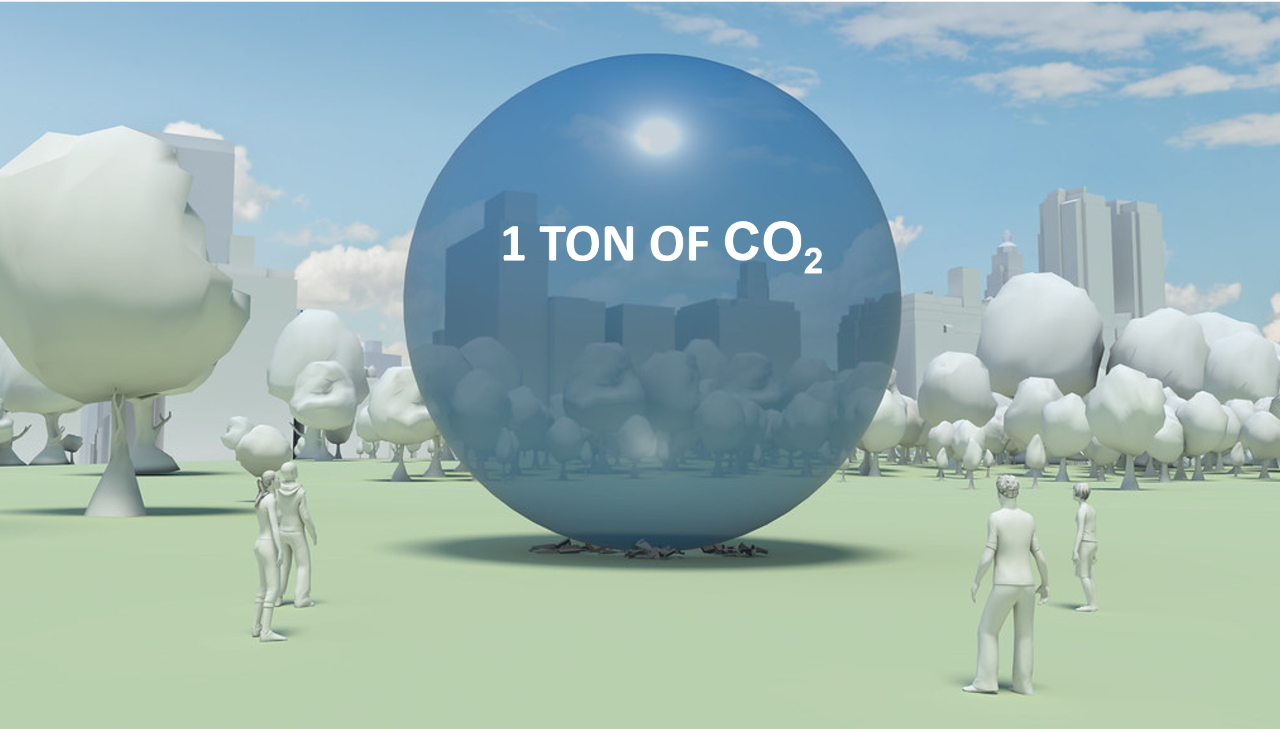Saud S. Alfassam, Head of Exploration, UNDP Accelerator Labs Co-Written with Digital Government Authority
Online services reduce CO2 emissions from Saudi cars with some 0.77 million tons annually
August 29, 2022

During the COVID19 pandemic our behaviour have changed. As we were prevented from requesting government services at physical services centers, we were requested to complete these online. As we no longer have to drive our cars or spend hours in traffic, we have saved the environment of some 0.77 million tons of CO2 in car emissions alone or 1.89 billion driving miles. By providing some 63 million transactional services online in the last 12 months, this has reduced the number of driving hours Saudis spend in their cars with some 43 million hours in 2021.
Prior to the mass digitization, citizens were required (sometimes by law) to physically attend government premises, spending hours in traffic and queues to complete a single transaction. With the advancement of digital transformation, citizens are now able to complete 97% of all their interactions with the government from their homes.
Since its foundation, in 1927, Saudi Arabia’s government began digitizing its operations with postcard mail printers; ever since the digital transformation in late 1990s and early 2000s, Saudi Arabia began building its infrastructures and enhance its connectivity with towers until we reached today’s 5G internet speed. This digital advancement has continued to prosper with one thing in mind: to enhance the quality of life of citizens and achieve Saudi Arabia’s 2060 targets on emissions and the SDGs. Today, leadership considers digitalization a necessity for its citizen’s quality of life and for businesses to thrive. Saudi Arabia has more than 30 government entities that focus on digitizing their operations, also more than 16 platforms that provide online services for the citizens and businesses sector.
Due to the COVID19 pandemic, many countries were forced to close their daily routine operations such as schools while maintaining limited health services and reduced municipal and judicial services to their minimum levels. This is where digitization became prominent. The migration to digital brought with it an agile government that would not have seen such successes had it not been for this exogenous factor.
Looking at these changes from an environmental perspective, more that 63 million transactions previously conducted in person was completed online during the last 12 months in Saudi Arabia. As a result, some 63 million physical roundtrips and the associated time spend driving were conducted annually. According to The Royal Commission for Riyadh City (RCRC), more than 92% of daily trips in Saudi are made by private vehicle. To put this in perspective, the average travel distance in the major three provinces in Saudi Arabia is 34 miles, or 46 minutes (round-trip). This is calculated using Google Maps for the 15 most common potential routes in the three major provinces in KSA. This gave an average travel time of three major provinces in Saudi Arabia (outside rush hours). For the average miles saved the calculation will be as follows: 34 miles x 63 million = 2.1 billion miles saved. With a conservative 90% of citizens travel by car and 10% use public transport or other means, some 1.89 billion miles in travel distance are saved. Multiplying the number of miles saved in transport, with the average CO2 of cars emission, as per the Environmental Protection Agency (EPA) estimated passenger vehicle emits of 407.5 grams of CO2, thus approximately 770,175~ tons of CO2 in car emissions were saved in Saudi Arabia in the last 12 months. To envision the physical size of the saved emissions, according to the International Carbon Bank and Exchange (ICBE), one ton of CO2 occupies 556.2m³ of volume. Thus, 770,175 x556.2 = 428,371,335 m³ or 0.428 km³ diameter of a spherical shaped cloud of CO2 has not been released into the atmosphere.
Applying a similar calculation method, the time saving can also be estimated. That is, 63 million physical service trips will require a return car journey of an average 23 minutes length each way, i.e. an estimated 46 minutes per visit to a government service center. Multiplying 63 million trips with 46 minutes and 10% conservative reduction is equivalent to some 43.47 million hours which could be spend on other activities like work, sports or spending time with family and friends.
This is indeed a celebration of sustainability and the agility of governments and shows how digital government can help us achieve the UN Sustainable Development Goals by showcasing how development has many positive outcomes that emerge from unfortunate circumstances, such as COVID 19. Not only facilitated social distancing, but also further improve inclusivity, accessibility, financials, and achieve environmentally sustainable society.
In recognition of these developments, the UNDP approached the Saudi Digital Government Authority (DGA) to explore potential cooperation opportunities to further assess the digital sphere in Saudi Arabia and extend its successes in the region and beyond. The UNDP launched its Digital Strategy 2022-2025 to foster people’s lives where it has a historical experience to support countries to build inclusive, ethical, and sustainable digital societies. The UNDP Accelerator Labs Network has local ties with digital and innovation ecosystems in 91 locations covering 115 countries. This enables the UNDP to develop solutions rooted in local ecosystems and can be scaled and adapted to fit multiple contexts. Whereby, the DGA aims to regulate the work of digital government in government agencies to reach a digital and proactive government capable of providing highly efficient digital services (G2C, G2B & G2G). The DGA hopes to achieve digital integration among all government agencies.
Supporting the DGA is of significant importance to the UNDP to share the state of change that Saudi Arabia is witnessing with the countries in the region and beyond.
Disclaimer: The above numbers are based on approximations and estimations; no assertive numbers are claimed in this blog. This study covers only some important KSA services, it does not cover all services. This simple calculation method is adopted from readers’ perspective as there is limited research on the environmental impact of e-government services; however, these numbers could drastically vary according to multiple factors and methods (Zampou, E. and Pramatari, K., in 2011- HOW GREEN ARE E-GOVERNMENT SERVICES).

 Locations
Locations